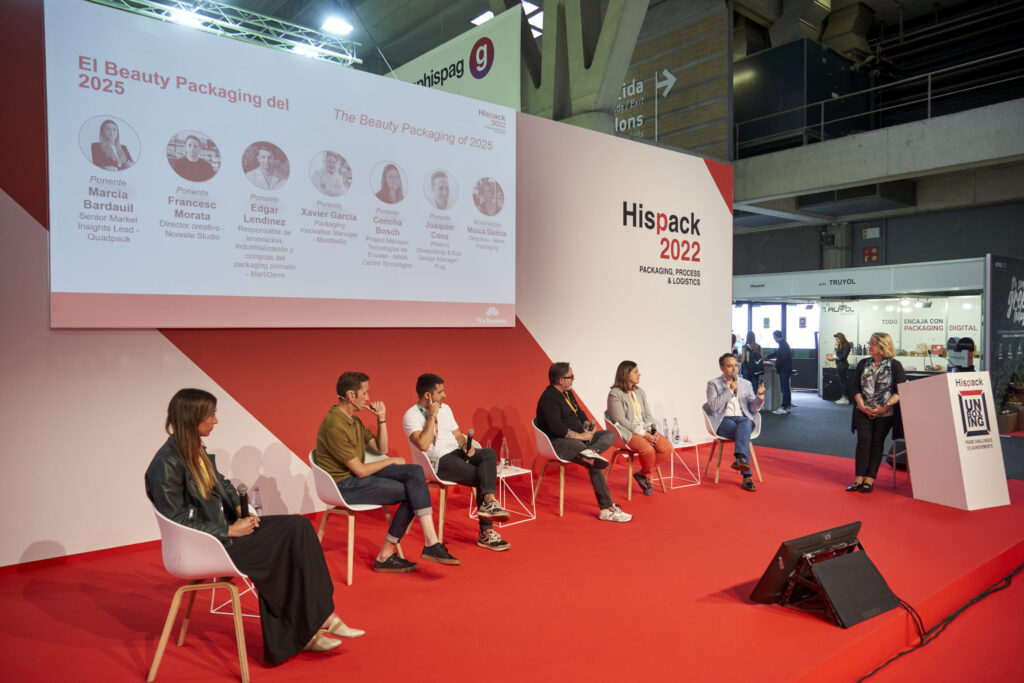Containers and packaging for a better future are redefined at Hispack in terms of sustainability. More than 150 experts and professionals from industrial and consumer companies will address in the fair’s presentation agenda some of the keys that are shaping sectoral innovation to minimize the environmental impact of packaging. We will talk about eco-design, new materials, circular economy strategies based on recycling and reuse, the legal obligations introduced by the new regulatory framework or the digital transformation of this industry.
From May 7 to 10, Hispack proposes more than 80 knowledge and networking activities as a complement to its commercial offer of more than 760 exhibitors and 1,250 brands represented. The “Hispack Unboxing” space stands out in Pavilion 2 of the Fira de Barcelona Gran Via venue with a program of conferences, round tables and presentations, in which representatives from food and beverage, cosmetics, pharmacy, textile and construction companies will participate. that use solutions from the packaging industry. There will also be speakers linked to entities, technology centers, clusters and suppliers of technology and packaging materials.

Sustainability, protagonist
In the “Hispack Unboxing” space, topics related to trends in packaging design, sustainability strategies and circular economy in mass consumption and other industrial sectors will be discussed; or ecodesign and ecoinnovation in containers and packaging. Advances will also be presented in cosmetic packaging, in new biodegradable and compostable containers, in recycled high-barrier flexible materials for food packaging, in glass bottle reuse projects for the wine industry and in the dynamics of the plastic recycling market for packaging.
Anafric becomes a collaborating entity company of Hispack. Meats are essential foods for human development, which provide proteins and nutrients and, at the same time, require specific conservation conditions. For each sector and for each type of product, having customized packaging that allows its conservation, isolation and duration of useful life is essential, to maintain traceability, sustainability and care for the environment.
«Our sector needs packaging with special needs that, in addition, must meet the requirements of an economy that aims to eliminate plastics and move towards a circular economy. All links in the meat industry are working to be more efficient and more sustainable,” explains the president of Anafric, José Friguls. “The best way for the packaging sector to understand our needs is to be present at the reference fair and, for this reason, our collaboration is going to be essential.”
















